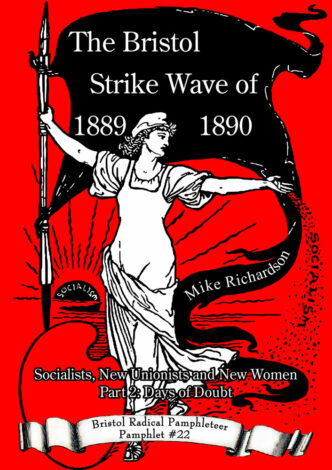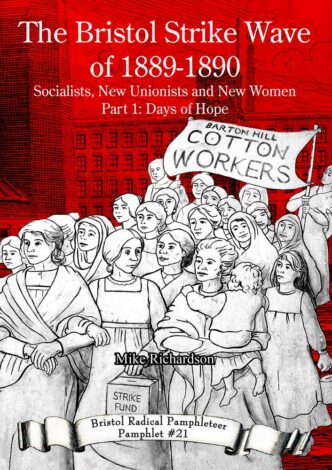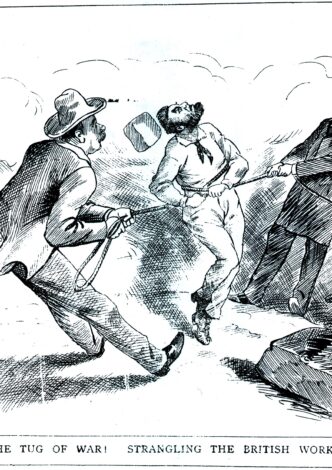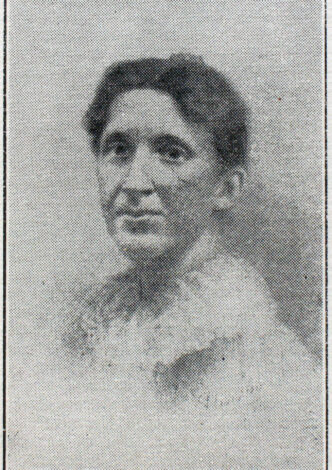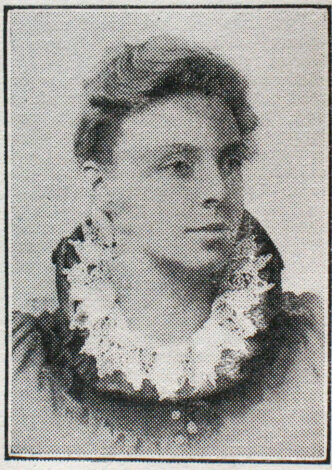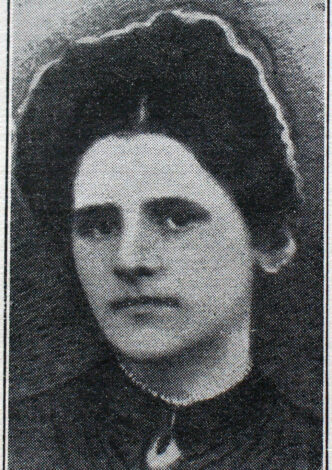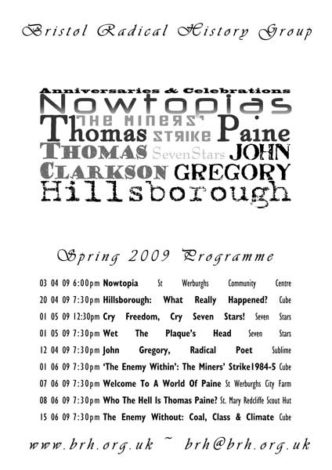The Bristol Strike Wave of 1889-1890
Socialists, New Unionists and New Women - Part 2: Days of Doubt
Following on from part one, this pamphlet traces the period of industrial unrest in Bristol between January and August 1890. The lockout of boot and shoe workers that began in December 1889, and continued for the first few weeks of January 1890, provided the opportunity for combining the forces of skilled organised workers with the unskilled and unorganised, in the drive to improve working conditions. It also encouraged forms of social unionism, with links to the wider community. Employers […]


